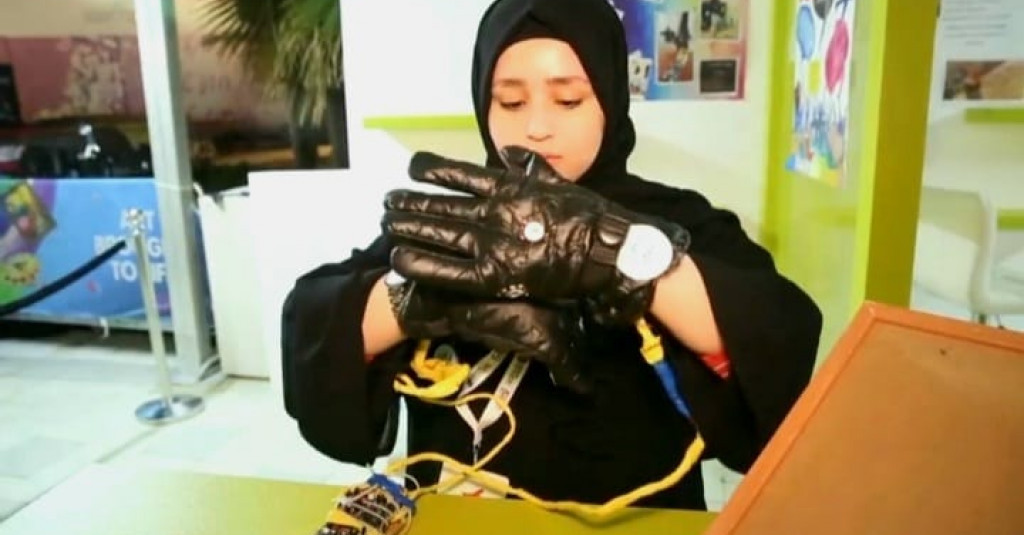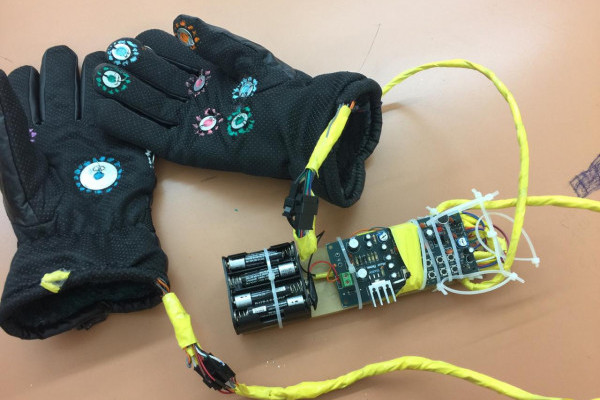Compassionate Innovation: Ajman University Student Builds ‘Spoken Gloves’ to Aid Hearing and Speech Impaired

Islam Al Samarai is a sensitive soul. A second-year student of the Bachelor of Dental Science program at Ajman University’s College of Dentistry, she was deeply moved by the plight of the hearing and speech impaired upon watching videos meant to sensitize students about disabilities.
“The video was about a hearing and speech impaired person watching his car burning down on a highway at night and he couldn’t call anyone including the police for help. In another video, a girl who had two parents with hearing and speech disabilities described how her mother could not call the ambulance when her father got a stroke. These situations are unforgettable and always leave a mental scar on people with hearing and speech impairments,” says Islam.
That’s what inspired Islam to launch Spoken Gloves, a project that optimizes modern technology for the benefit of people with speech and hearing impairments. Losing one or both of their senses is a devastating experience already, but it should not limit their goals in life, says Islam.
Together with her colleague and friend Lana Emad, she developed a glove that understands hand gestures and converts it into pre-recorded words.
The glove has a smart microchip, programmed mechanically to sense movement in the glove and convert it into a loud sound using the electronic speaker attached to the glove. The movement is detected by iron sheets; as soon as they touch each other, they carry signals through wires connected to the smart microchip, enhancing the sound and making it audible to other people.
Spoken Gloves takes a creative route to providing the hearing and speech impaired a voice so that they can communicate with others. It also is a great way of promoting sign language, so that more people can understand it and connect with speech and hearing-impaired people.
Although the project is still at an experimental stage, with only 8 words programmed until now due to technical and resource limitations, and prior patents, it has already proved its potential at various fora. Islam and her colleague have won certificates of appreciation from reputed organizations such as Abu Dhabi Innovation Center, Emirates Foundation, Sharjah Museum Authority and similar others for the project.
Currently available only in Arabic, Islam intends to create versions of spoken gloves in other languages to facilitate more hearing and speech impaired people across cultures.
“We must cooperate with very large companies in order to make the final improved version of this project, and this is what we aspire to achieve to solve a big problem in this community,” concludes Islam.
Islam’s invention is a great example of compassionate innovation by an AU student and we hope that many more students get inspired by her to create similar projects that ultimately benefit the society.
